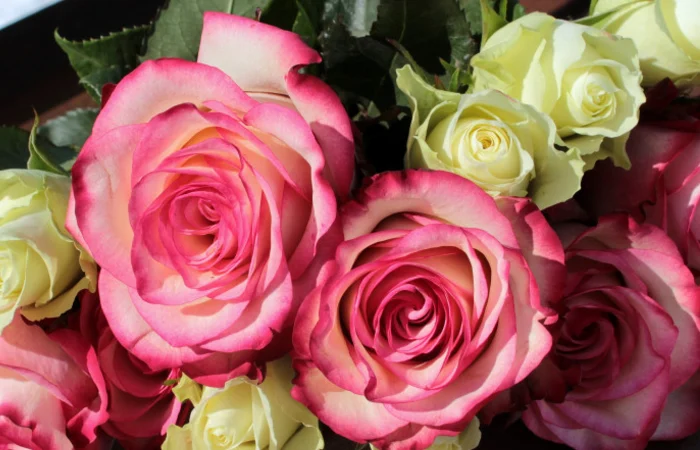Roses are among the most beloved flowers worldwide, celebrated for their beauty, fragrance, and symbolism. They have been cultivated for thousands of years and have become an essential part of gardens, landscapes, and floral arrangements. With such a rich history, it is no surprise that there are many types of rose flowers to explore. This article will provide an overview of the various classifications of roses, highlighting their unique characteristics and uses.
Understanding Rose Classification
Roses can be classified in several ways, including by their growth habits, flower forms, and breeding origins. The most common classifications include species roses, hybrid roses, and modern roses. Each category contains various types, each with distinct traits. Understanding these classifications helps gardeners choose the right rose for their needs.
Species Roses
Species roses, also known as wild roses, are the original forms of roses that grow naturally in the wild. These roses are often hardier and more disease-resistant than cultivated varieties. They typically have simple flowers with five petals and are found in a range of colors. Some notable species roses include
Rosa gallica
This species is known for its deep pink flowers and strong fragrance. It is often used in traditional rose gardens.
Rosa rugosa
This rose is recognized for its ruggedness and ability to thrive in various conditions. It produces large, fragrant blooms and attractive hips.
Rosa canina
Commonly known as the dog rose, this species has pale pink flowers and is often found in hedgerows.
Hybrid Roses
Hybrid roses are the result of crossbreeding different species or varieties to produce specific traits such as color, fragrance, and disease resistance. The most common types of hybrid roses include
Hybrid Tea Roses
These are perhaps the most recognized type of rose. They have large, single blooms on long stems, making them ideal for cutting. Hybrid tea roses come in various colors and have a classic rose shape.
Floribunda Roses
Floribunda roses produce clusters of smaller blooms, offering a vibrant display. They are known for their continuous blooming throughout the growing season and are often used in landscaping.
Grandiflora Roses
This type combines traits of hybrid tea and floribunda roses. Grandiflora roses produce large blooms in clusters, providing a stunning visual impact.
Modern Roses
Modern roses are a broad category that includes many of the new cultivars developed in the last century. These roses are bred for specific characteristics such as disease resistance, color variety, and fragrance. Some popular types of modern roses include
Miniature Roses
These are small roses that grow to about 1 to 2 feet tall. Miniature roses are perfect for container gardening and small spaces. They produce small blooms in various colors.
Climbing Roses
Climbing roses are known for their long, flexible canes that can be trained to grow on trellises, fences, or walls. They provide vertical interest in gardens and can produce large, fragrant blooms.
Groundcover Roses
These low-growing roses spread out and are excellent for covering bare ground or slopes. They are hardy and typically require less maintenance than other types.
Old Garden Roses
Old garden roses refer to roses that existed before the introduction of hybrid roses in the 19th century. They are prized for their fragrance, unique forms, and historical significance. Some well-known types of old garden roses include
Alba Roses
These roses are known for their pale colors and strong fragrance. They are hardy and can tolerate poor soil conditions.
Damask Roses
Famous for their exquisite fragrance, damask roses are often used in perfumery. They have soft pink or white blooms and are known for their historical significance.
Moss Roses
These roses are characterized by their mossy, hairy buds. They have a unique appearance and are often fragrant.
Specialty Roses
In addition to the main categories, there are also specialty roses that serve specific purposes or have unique characteristics. These include
Tea Roses
Originally developed in China, tea roses are known for their delicate fragrance and formal shape. They are often used in perfumes.
Bourbon Roses
These roses are a cross between China roses and damask roses. They are known for their rich fragrance and ability to bloom repeatedly throughout the season.
Noisette Roses
These are a group of roses that originated in the United States. They are known for their climbing habit and strong fragrance.
Conclusion
The world of roses is vast and diverse, with many types to choose from. Each category of rose offers unique characteristics, colors, and fragrances to suit different gardening needs and preferences. From the hardy species roses to the elegant hybrid teas and the charming miniature varieties, there is a rose for everyone.
Understanding the various types of roses can help gardeners make informed choices when selecting plants for their gardens. Whether you are a novice gardener or an experienced horticulturist, exploring the different types of roses can enhance your gardening experience and bring beauty to your outdoor space. With proper care and attention, these exquisite flowers can thrive and provide joy for years to come.


